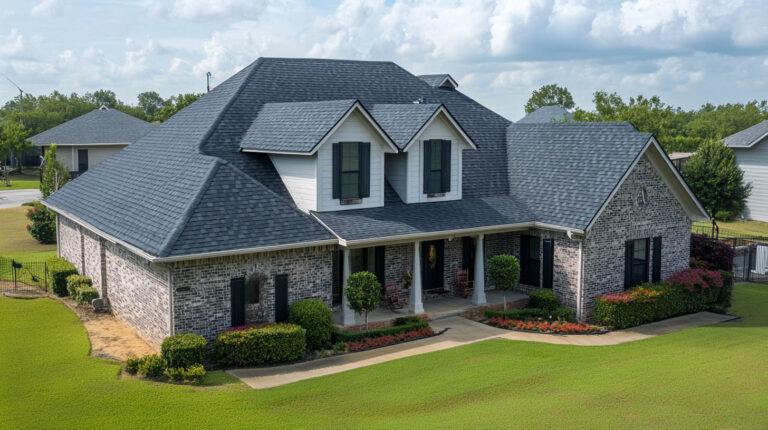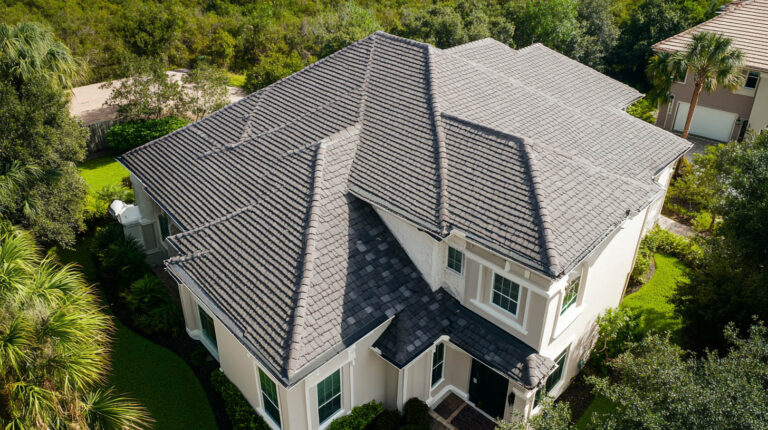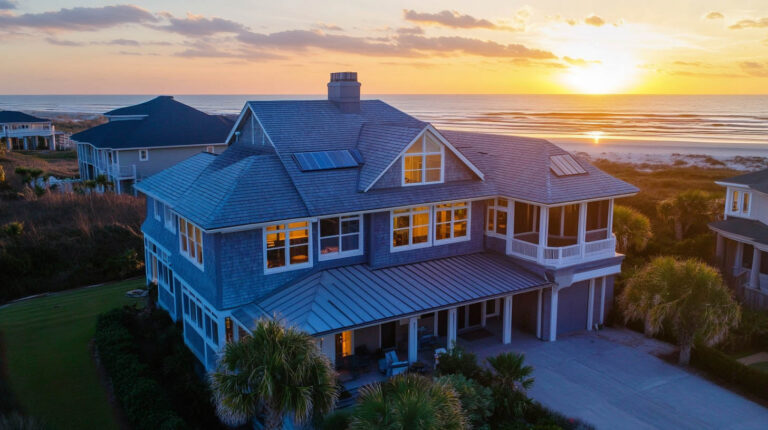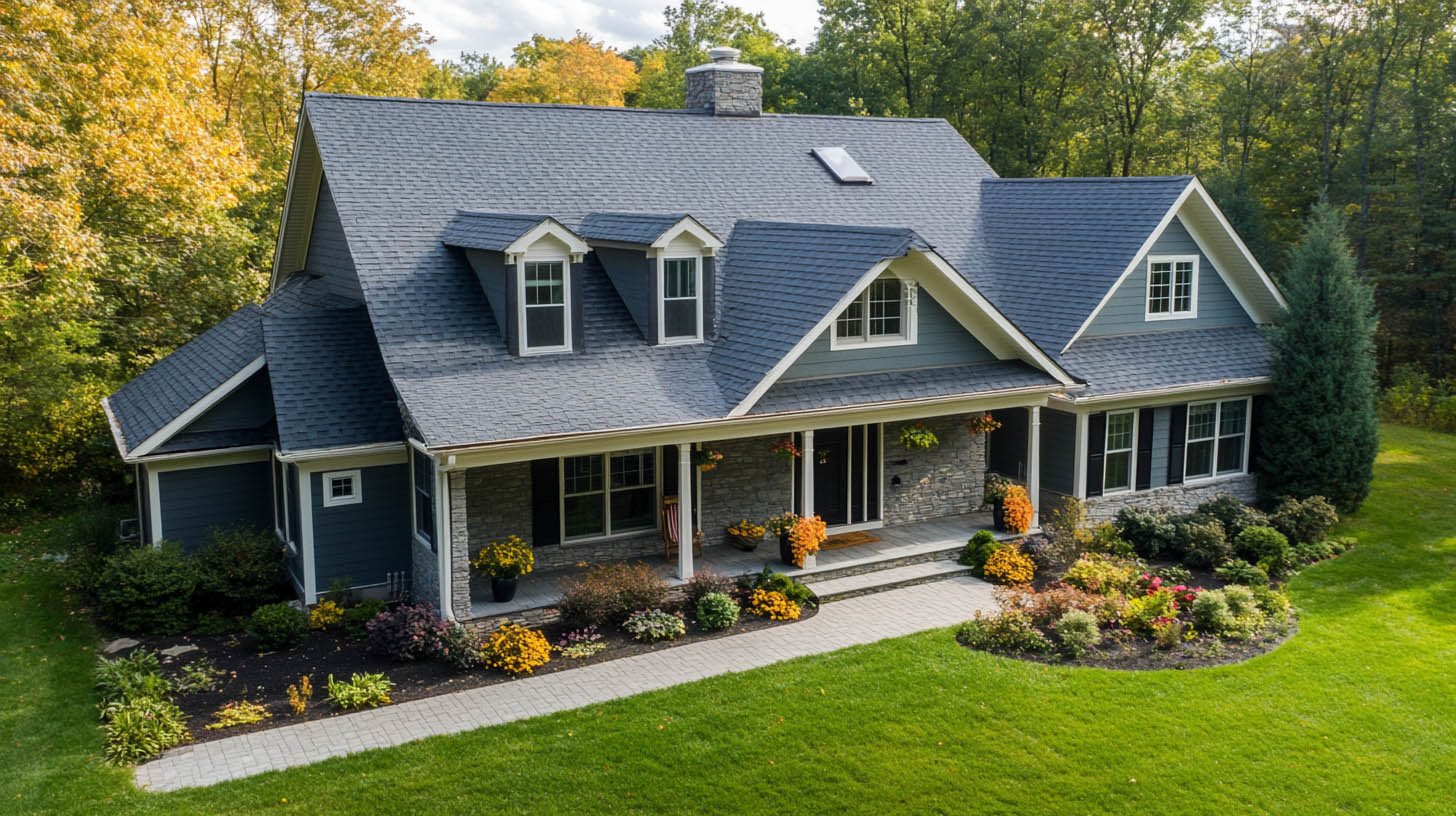
Blog
Can a New Roof Improve Your Home’s Energy Efficiency?
Upgrading to a new roof is a significant investment, and while many homeowners consider this improvement for aesthetic or structural purposes, it’s worth noting the substantial energy efficiency benefits a new roof can provide. Avenue Roofing in Jacksonville, FL, specializes in roofing solutions that not only enhance the durability of your home but also contribute to reduced energy consumption and improved comfort.
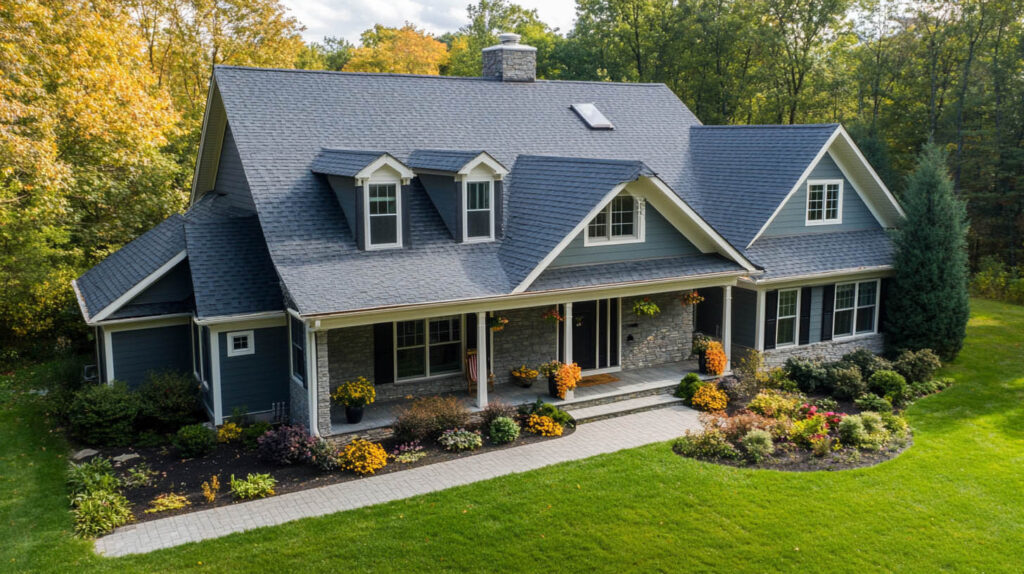
The Impact of Roof Age and Condition on Energy Efficiency
An older roof, particularly one with outdated materials or structural issues, can lead to substantial energy loss. Over time, wear and tear cause gaps around shingles, weakening the insulation and allowing air to escape. A home with an outdated or damaged roof can lose up to 25% of its heating and cooling energy through poor insulation, which strains your HVAC system, increasing energy bills and reducing overall comfort.
Key Ways a New Roof Enhances Energy Efficiency
1. Advanced Roofing Insulation
Insulation is a vital component of any energy-efficient roof. Installing new insulation during a roof replacement ensures that attic spaces remain protected against extreme temperatures. An uninsulated attic allows excessive heat or cold to seep into the house, causing HVAC systems to overwork. Choosing high-quality insulation materials, such as fiberglass or foam, can reduce energy loss and help keep temperatures stable throughout the year. During re-roofing, Avenue Roofing professionals prioritize attic insulation to maximize these energy benefits.
2. Improved Ventilation Systems
Ventilation works hand in hand with insulation to ensure efficient airflow within the attic. Without proper ventilation, hot air can accumulate in the attic, warping decking and diminishing the lifespan of shingles. By improving airflow, warm air exits through exhaust vents, and cooler air circulates, preventing heat buildup. A well-ventilated roof reduces attic temperatures and prevents moisture buildup, both of which improve energy efficiency.
3. Choosing Energy-Efficient Shingles
Roof shingle color and material significantly affect energy efficiency. Lighter-colored shingles reflect sunlight rather than absorbing it, reducing heat transfer to the attic. For Jacksonville’s hot climate, Avenue Roofing recommends energy-efficient shingles with reflective coatings, which help maintain cooler indoor temperatures and lower air conditioning costs.
4. Sealing and Weatherproofing
The sealing process during a roof replacement can address small gaps and seams that compromise efficiency. Specialized roofing materials today include options with better waterproofing and enhanced UV resistance. This helps maintain the structure and appearance of the roof while preventing energy loss through leaks or weakened seals.
Is a New Roof Enough for Total Energy Efficiency?
While a new roof substantially boosts a home’s efficiency, additional steps like window upgrades, wall insulation, and energy-efficient HVAC systems can further reduce overall energy consumption. Roof insulation and ventilation alone can cut a home’s energy costs by up to 15%, but combining these with other energy-saving measures delivers optimal results.
Unique Fact for Energy-Conscious Homeowners
Did you know? Studies show that installing a roof with energy-efficient materials can lower peak cooling demand in hot climates by as much as 20%, which directly translates to reduced electricity usage and energy bills.
FAQs
1. How does roof color affect energy savings?
Light-colored roofs reflect sunlight, reducing the amount of heat absorbed and helping to maintain cooler indoor temperatures, which decreases the demand on air conditioning.
2. Should I add insulation to my attic if I get a new roof?
Yes, combining roof replacement with new insulation offers maximum energy efficiency by reducing air leaks and improving temperature regulation.
3. How often should a roof’s ventilation be checked?
Ventilation should be inspected annually or during routine maintenance to ensure it remains effective in regulating attic temperatures.
4. Will a new roof help with winter heating costs too?
Absolutely, a well-insulated and sealed roof can trap heat during colder months, reducing heating costs.
5. Are energy-efficient roofs more costly?
While some energy-efficient materials may be more expensive initially, they offer significant savings on energy bills over time, making them a worthwhile investment.
Conclusion
Choosing a new roof can significantly enhance your home’s energy efficiency. Partnering with experts like Avenue Roofing ensures that each element, from insulation to ventilation, is optimized for Jacksonville’s climate. A professionally installed, energy-efficient roof not only reduces utility costs but also contributes to a sustainable home environment for years to come.
To learn more about the risks of installing multiple layers of shingles, click here.
